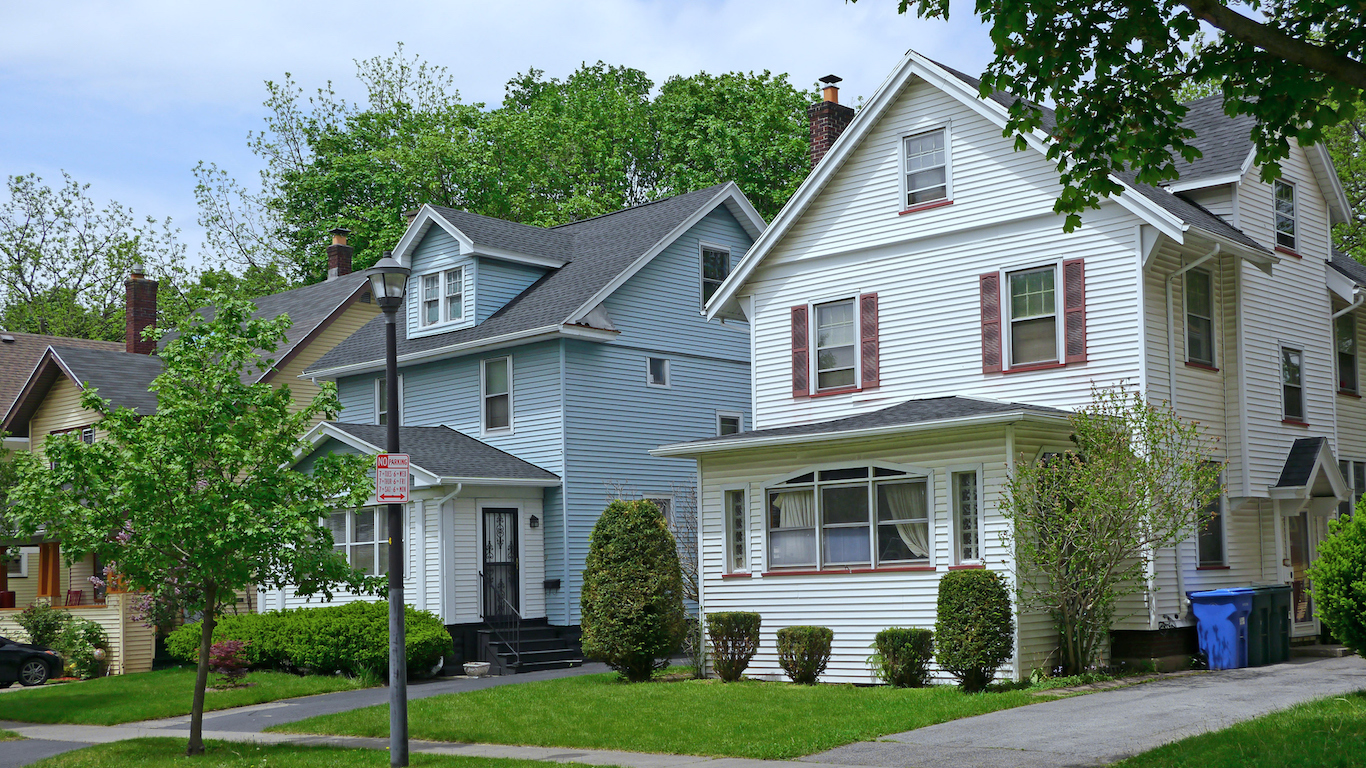
When U.S. home prices collapsed in 2006, some cities were hit hard. According to a report earlier this year from CoreLogic, at the market peak in November 2006, 67% of U.S. homes were overvalued, and just 1% were undervalued. In December 2017, just 33% of homes were overvalued, and 32% were undervalued.
If you look at a house not only as a place you want to live but as an investment, buying a home in the right location at the bottom of the cycle offers the best chance of reaping a substantial gain when you decide to sell.
Many of the country’s metro areas where prices dropped the most have recovered all and more of the value they lost when the housing crisis hit. There remain, however, some cities where home price appreciation may still produce outsized results.
Researchers at Realtor.com looked at homes sold over the past 12 months in the 100 largest U.S. metropolitan areas and compared the most recent sales price to the previous price going back as far as 10 years. Profit was defined as the difference between the two prices, and the researchers used the amount of profit to calculate an average annualized return.
Some of the cities where the average annual return was highest are not surprising: Seattle and San Jose (12%), Denver (11%), and Boston and Portland (10%) have seen sharp home price increases for the past several years.
But the researchers identified four cities that might surprise. We list them below along with the current median price and average annual return. We’ve added percentage change since the market peak along with the percentage change since the market trough from a report at Kiplinger. We’ve also added a comment from the Realtor.com researchers.
Bridgeport, Connecticut
Median price: $789,100
Average annual return: 14%
% change from peak: -20.7%
% change from trough: +21.4%
“[E]ver since the financial recovery, properties at both ends of the economic spectrum have been doing very well. … [I]t isn’t just mansions driving the price increases. Even higher price appreciation can be found in way less affluent Bridgeport proper … [where the] median price there is just $199,000.”
Detroit, Michigan
Median price: $260,000
Average annual return: 12%
% change from peak: -28.3%
% change from trough: +111%
“[M]edian home values in Detroit fell from $137,200 in March 2008 to $108,800 by March 2012, leaving many owners underwater on their mortgages. But in recent years, the city has been on the upswing, as more folks move into its revitalized downtown. Younger buyers are finally flocking into the area to purchase condos in converted industrial buildings ….”
Providence, Rhode Island
Median price: $350,000
Average annual return: 11%
% change from peak: -25.2%
% change from trough: +50.2%
“The hot market is spurred by a growing downtown, which has new hotels and apartment complexes going up. … Over the last year alone, the average Rhode Island homeowner added $18,600 in home equity.”
Nashville, Tennessee
Median price: $368,000
Average annual return: 10%
% change from peak: +40.6%
% change from trough: +62%
“A surplus of good jobs has brought home buyers here. And the coolness factor of living in Music City has made it catnip for younger buyers.”
The full Realtor.com report is available at the organization’s website.
It’s Your Money, Your Future—Own It (sponsor)
Retirement can be daunting, but it doesn’t need to be.
Imagine having an expert in your corner to help you with your financial goals. Someone to help you determine if you’re ahead, behind, or right on track. With SmartAsset, that’s not just a dream—it’s reality. This free tool connects you with pre-screened financial advisors who work in your best interests. It’s quick, it’s easy, so take the leap today and start planning smarter!
Don’t waste another minute; get started right here and help your retirement dreams become a retirement reality.
Thank you for reading! Have some feedback for us?
Contact the 24/7 Wall St. editorial team.




